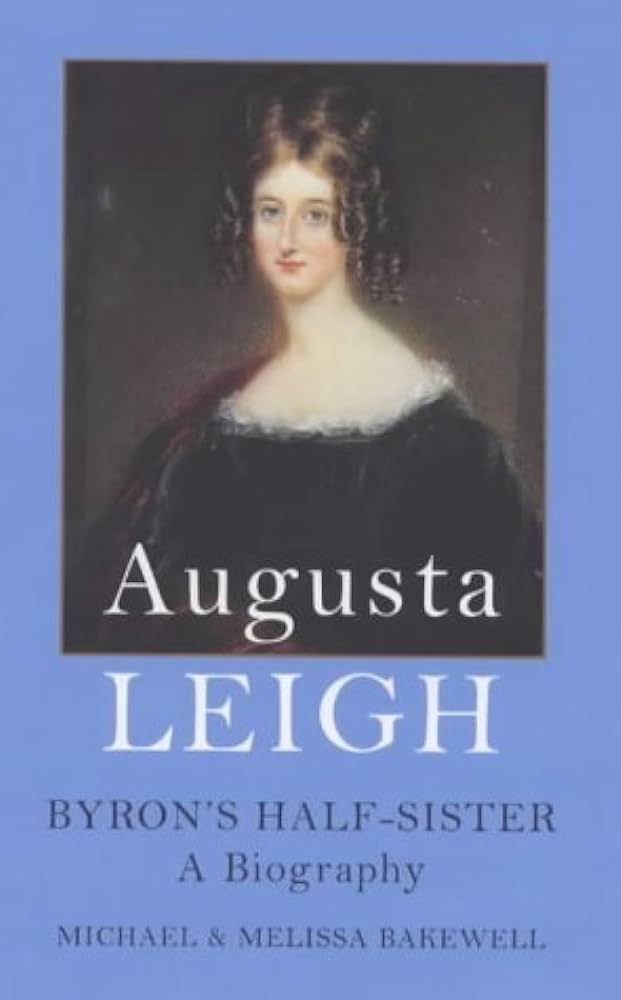This is the latest in a line of biographies of people who are not as interesting as those with whom they are famously associated. Like the others, it is fraught with a tension between wanting to devote as much space to the famous as possible while maintaining the integrity of its project. Augusta Leigh (1783-1851) was the half-sister of the poet Lord Byron. She was also his lover. Aside from that, she does not appear to have been a very remarkable person. One might say she did no more than provide the means for her histrionic relative to prove himself right about what he had always suspected: that he was doomed to be a villain and an outcast.
The truth is less simple than that. Byron fled the country in 1816 because his wife, Annabella, was levelling three accusations at him as part of divorce proceedings: as well as incest (not then technically a crime), he was charged with homosexuality and heterosexual sodomy (both then crimes). His conviction that he had married the wrong woman drove him to treat his wife with unforgivable cruelty. In the final stages of her pregnancy he would station himself in the room below her bedroom and throw soda-water bottles at the ceiling to keep her awake.
Subtract Augusta from Byron’s life, and he would still have found a way to get himself ostracised. Subtract Byron from Augusta’s life, and what is left? The answer is an existence caught curiously between the distinctive and the obscure. Augusta was brought up at the likes of Holdernesse House and Castle Howard, before moving into the uncomfortably small Six Mile Bottom near Newmarket. Her penchant for dashing rakes – her husband and cousin, George, was one, though not in Byron’s league – was the only eccentricity in a shy and practical nature.
The Bakewells save their subject matter from this dangerous equivocality by the sureness of their descriptive touch. We read of the gambling, the gossip, the parties and the daily domestic arrangements. The sketch of George Leigh is particularly memorable. A sporting bore, he seems to have named one daughter, Medora, after a horse; when Byron became engaged, he took bets for and against the marriage taking place.
As to Augusta, then, why did Byron love her so? Throughout their adult relationship she was either pregnant or looking after very young children. She was not interested in his poetry. When he suggested to her at the beginning of their affair (before his marriage, but not before hers) that she run away with him to the continent, she seemed eager, hesitated, then declined. This lack of passion may have played its part in the fascination she held for him; he felt that if there were scenes to be made, then it should be he who made them.
The Bakewells stress her ability to make him laugh (she was an accomplished mimic); and laugh, above all, at himself. She made him reasonable by not taking his unreasonableness seriously, a trick his wife never discovered. When, during his honeymoon (which he gallantly termed his “treaclemoon”), Augusta heard that he had “taken to stalking the long gallery in the middle of the night with his pistol and his dagger, threatening to kill himself”, she advised Annabella to ignore these “grumps”.
This seems to have been the key. Unable to pose, when alone with his half-sister Byron was forced to relax, to be natural and even pleasant. One of the great unanswerable questions of their histories is what would have happened if the two had gone away together in 1813. As it was, after the crisis of Byron’s marriage and subsequent exile, Augusta was left at the mercy of a spendthrift husband she did not love and an embittered sister-in-law bent on revenge. Unsurprisingly, the rest of her life – as described here so fully by the Bakewells, who make it readable against the odds – was wretched.

